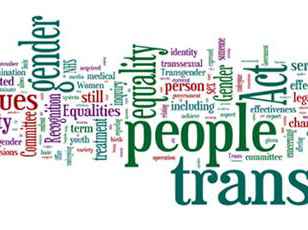
On August 11, 2020, Joe Biden announced the selection of the first woman of color, Kamala Harris, as his Vice-Presidential candidate.
“Kamala, as you all know is smart, she’s tough, she’s experienced, she’s a proven fighter for the backbone of this country, the middle class, for all those who are struggling to get into the middle class,” Biden said, just before introducing her. “Kamala knows how to govern. She knows how to make the hard calls. She’s ready to do this job on Day One and we’re both ready to get to work, rebuilding this nation and building it better,” he continued. “One of the reasons I chose Kamala is because we both believe that we can define America simply in one word, possibilities. Possibilities. Let me say it again, possibilities. That’s America. That’s what sets this nation apart, is that everyone, everyone, the ability for everyone, and we mean everyone, to go as far and dream as big as hard work and their God-given ability will take them.”
Yet when considering the success of any female political candidate, we need to talk about ‘likeability,’ because this is the issue that, regardless of how experienced and accomplished a woman is, it will affects her chance of being elected, as was the case with Hillary’s Clinton’s 2016 presidential run.

According to the PEW Research Center, Clinton captured 54% of the women’s vote and Trump 39%; Clinton captured 45% of the white women vote, and Trump 47%, and Clinton captured a much higher percentage of the younger voters compared to Trump. But 4 out of 10 eligible voters did not vote, which helped to hand Trump the election.
So this begs the question. Will Kamala Harris’s candidacy impel more people to go to the polls in favor of a Democratic ticket on November 3rd?
Among the non-voters in 2016, the PEW Research Center’s findings show that they were younger, less educated, lower income, and non-white. It is speculated that Harris, being a woman of color, may be able to capture the non-white vote. If Harris can bring to the polls both the non-white and white women nonvoters of 2016, this could be the determining factor in who wins the 2020 presidency.
In the past few weeks, Trump has been feverishly trying to woo white suburban women, but it has not proven successful. According to an Oct. 26th article in the New York Times, “The white suburban voters the president needs to carve a path to victory have turned away from him, for deeply personal reasons”.
The traditional demographics of being white, female, suburban has changed. For example, an increasing number of successful suburban white women in the United States do not have children. According to a study by the New York-based think tank the Center for Work-Life Policy, “43 percent of college-educated women between the ages of 33 and 46 are childless. Whether they call themselves “childless,” “childfree,” “childless-by-choice” or even just “still on the fence,” a significant number of New York women in their 30s and 40s are taking a pass on motherhood.”
Kamala Harris is a prime example of a woman who prioritized a professional career over the traditional suburban lifestyle. Harris does not have kids of her own, choosing to instead parent her stepchildren (who lovingly call her “Momala”), making her life choices more relatable to today’s white suburban woman.
Further, Trump’s track record as president is not helping his plight. In a recent NPR/PBS poll, 66% of suburban women said they disapproved of Trump’s performance as president overall, and 58% said they strongly disapproved.
Additionally, the increasing US case count and death toll from the COVID-19 pandemic, as well as the recent Black Lives Matter protests over police brutality cases, may further encourage people to vote for change. “When people see their own rights, the rights of their family, and the rights of their friends and neighbors being attacked, it inspires them to push for change,” says Heidi Sieck, Co-Founder & CEO of #VoterProChoice. “I do think that young people are eager for a change, and that the Biden-Harris ticket is the only choice available that would allow us to realize that change. Roughly 51% of Millennials voted in the 2016 election, and given the recent activation of millions over the mishandling of the COVID-19 crisis as well as this year’s social justice uprisings, we can only hope for a higher turnout in this election.”

About the writer: Simone Soublet, a communications and journalism studies student at Loyola Marymount University, is a 2020 fellow in the Sy Syms Journalistic Excellence Program* at Women’s eNews, funded by the Sy Syms Foundation. The Sy Syms Journalistic Excellence Program at Women’s eNews fellowship supports editorial and development opportunities for editorial interns in the pursuit of journalistic excellence.
Sy Syms Journalistic Excellence Program
The Sy Syms Journalistic Excellence program at Women’s eNews was launched in 2014 with support from the Sy Syms Foundation. The fellowship provides support and development opportunities for editorial interns in the pursuit of journalistic excellence.
“For a democracy to flourish all voices must be heard.” says Marcy Syms, a founding Trustee and President of the Sy Syms Foundation. “Through its investigative reporting Women’s eNews gets at the essence of good journalism. The Sy Syms Foundation is proud of this collaboration to support today’s newest women journalists.”
As part of its mission to create social change for women and girls through investigative reporting, Women’s eNews helps foster, train, and support the career development of new journalists with a focus on social justice and women’s rights.


